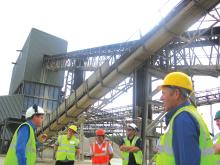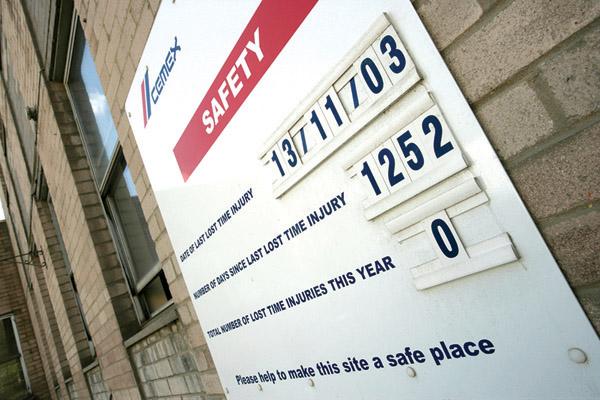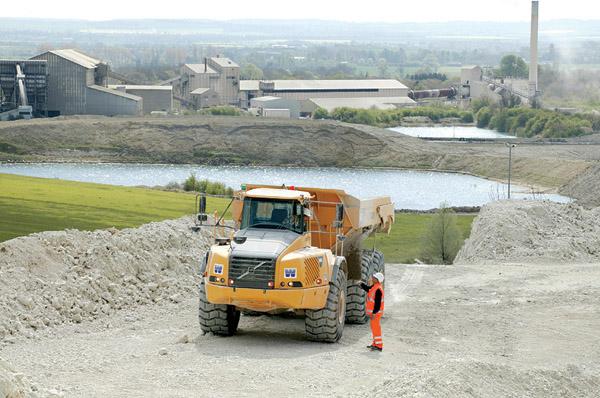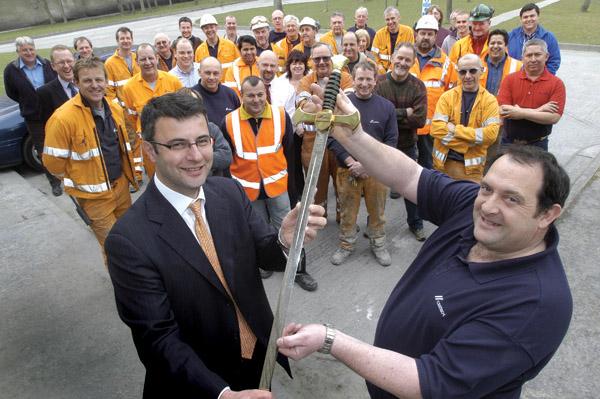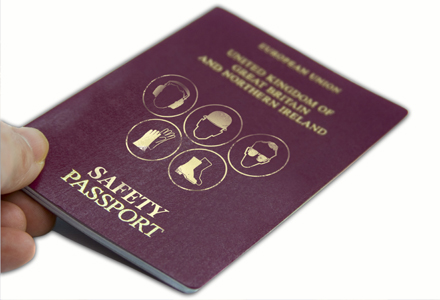
Ensuring contractor competence has always been key to reducing accidents but is not always easy to do. ABE takes a look at the passport scheme used in the UK
Reducing accidents is a target for the whole European quarrying industry and many companies have implemented initiatives and employee training to minimise risks. But significant numbers of aggregates operations rely on contractors for a whole variety of quarry tasks and ensuring this group has sufficient training and knowledge is a difficult challenge.
In a bid to improve contractor safety, the UK quarry industry has widely accepted the Safety Passport scheme as an industry standard and is claimed to have helped deliver an accident reduction. The scheme involves approved training programmes to ensure contractors have a certain level of understanding of the quarry environment.
"In many UK quarries there is a 50:50 split between direct employees and contractors, which equates to around 25,000 contractors," said Kerry Jones, who is managing director of GSS training, which provides Safety Passport training.
"These numbers make it difficult for quarry operators to check the training history on an individual basis, which is why the passport scheme works so well.
"Previously, the problem for quarry operators is they often don't know how in-depth a contractors' training has been or where there are gaps in their knowledge. Passports focus on competence and give quarry operators a guarantee of a certain level of knowledge." Safety passports started in the early 1990s in South Wales when health and safety managers in the area from the petroleum and steel industries got together to compare some of the issues they faced with contractors to see if there were any similarities between different industries The UK's
The schemes and training providers in the UK are accredited by the Safety Passport Association and the quarry industry version was approved 10 years ago.
"The quarry industry got together and agreed not to allow any contractors onto site without a safety passport. Having a consolidated industry in the UK has helped to fast track this agreement," explained Jones.
According to the UK's
"The benefit of the passport scheme is that it is industry led, rather than legislative led, which helps with acceptance as it gives the sector ownership. This aids take up of the scheme and also means that the industry can implement any changes it needs." According to Jones, some contractors see the training as an extra burden but it usually speeds up arrival on a new site.
"Approved providers deliver the course over two days - the first day is a core training day which is the same whatever industry you work in, while the second is industry specific," she said. "At the end there is a multi-choice exam and this gives the contractor a three year safety passport. The cost is around £150 so is fairly cheap.
"After 21/2 years the contractor has a six month window to renew the passport with a one day refresher course, which costs around £100, and even after three years, there is a three month grace period to do a refresher course before they have to retake the full course." The courses generally create a healthy debate, according to Jones, with sharing of safety issues and problems that the delegates have encountered on site.
"The aim of the course is not to tell the contractors how to do their job, but to teach them to think about the risks and assess the danger every time they start work," she added.
The scheme is used in Ireland as well as the UK and GSS has also undertaken training for clients in German and Denmark.
"It is important for quarry operators to ensure workers travelling to the UK have passports," explained Jones. "But also quarry operators working in other countries are aware of how transferable the scheme is and want other parts of their operations to benefit from the approach."


